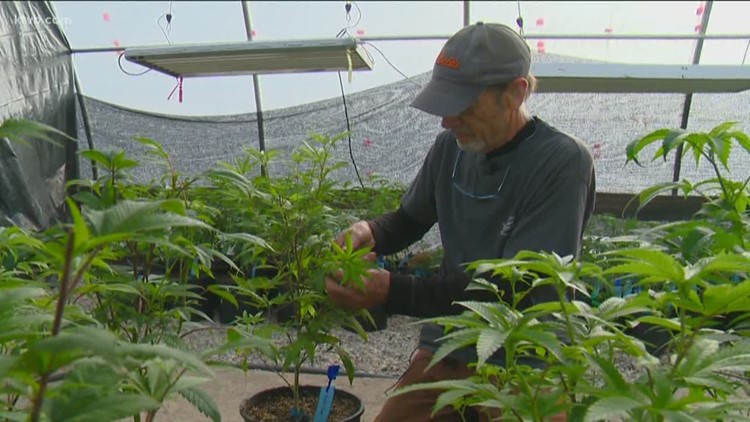SALEM, Ore. — It may seem like a pipe dream now, but Oregon lawmakers are anticipating the federal government legalizing, or at least tolerating, the interstate transfer of marijuana.
The Senate Judiciary Committee moved forward a bill this week empowering the governor to enter into agreements with other states for such transactions. The bill , which was completely rewritten in an amendment, goes to the Senate floor for a vote.
Unlike the original bill, the new version specifies that it would not be operative until federal law is amended to allow for the interstate transfer of marijuana or the U.S. Department of Justice issues an opinion or memorandum allowing or tolerating it.
Sen. Cliff Bentz, one of two Republican committee members who voted against the bill, said he prefers to wait for the federal government to take action.
But Sen. Shemia Fagan of Portland, who was among four Democrats and one Republican who voted in favor Wednesday, said it would give Oregon marijuana businesses an advantage if and when the federal government opens the path.
"Oregon's industry is basically first in line for when the feds do act," Fagan said. "If we wait until the feds act, then all the other states will be working with their legislatures to then pass, and Oregon will kind of be at the tip of the spear and take advantage of what could be a lucrative opportunity for Oregon industry."
There are several bills in Congress that would take marijuana off the federal controlled substances list. Their future remains uncertain, but even a decision by the federal Justice Department to de-prioritize prosecuting interstate marijuana commerce would be enough for Oregon's governor to start seeking cooperation with other states, according to the bill and its co-sponsor, Sen. Floyd Prozanski, D-Eugene.
"The governor would not be able to move forward unless there was something like a new Cole memo, or something happening in Congress to permit this type of transaction, or something else coming out of the U.S. Attorneys as to tolerance," Prozanski told the judiciary committee, which he chairs.
The Cole memorandum restricts federal marijuana law enforcement in states where pot is legal. Oregon was the first state to decriminalize personal possession, in 1973. It legalized medical marijuana in 1998, and recreational use in 2014. Ten states have legalized recreational marijuana.
Any agreement with other states must ensure enforceable public health and safety standards, and include a system to regulate and track the interstate delivery of marijuana items, the bill says.
The judiciary committee's action was hailed by Adam J. Smith, executive director of the Craft Cannabis Alliance, an Oregon association of cannabis and allied businesses.
"We had an exciting week as export moved forward in Oregon, and we are laying the groundwork for a national campaign," Smith said in a statement. "We are pushing so hard to open new markets for Oregon's world-class cannabis by 2021."
A yes vote on the Senate floor, which hasn't been scheduled yet but could happen as early as next week, would send the bill to the House side.
Democratic Gov. Kate Brown has not staked out a position on the bill, telling reporters instead that her priority is opening up the banking industry to cannabis businesses. In an indication of how much the industry is booming, cannabis generated a record-high $82 million in tax revenues for the state during the last fiscal year, according to the Oregon Department of Revenue.



